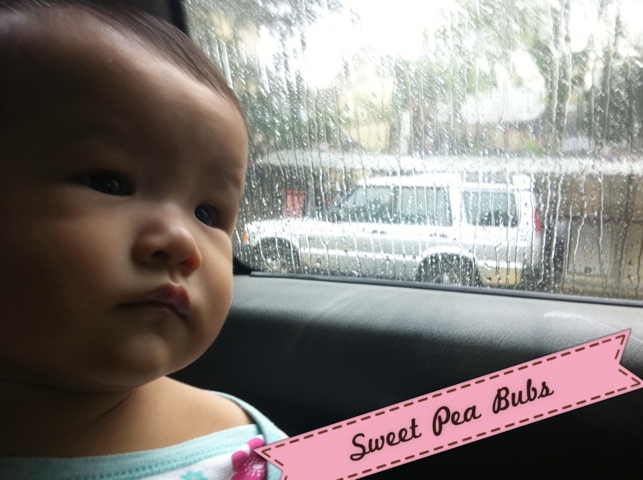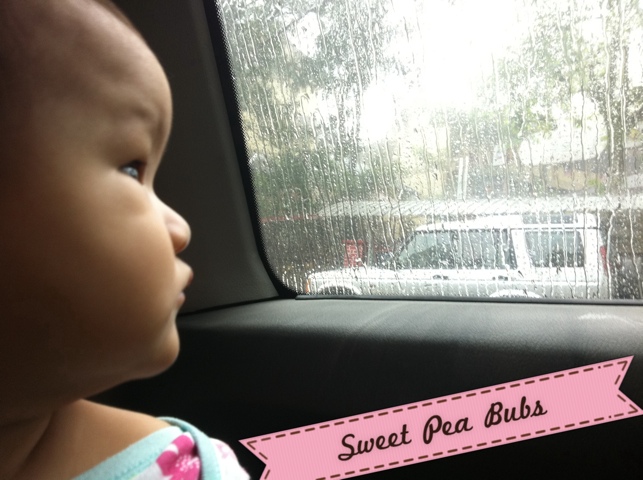 |
| Little cranky girl with fever. |
It was yesterday that I was having a flu in the morning. Taken a clarinase (Yes, it's safe for nursing moms, according to Dr. Koe) and taken a nap too with mild headache.
I got up at about 2ish woken by her cries. Mom told me the thermometer needed a new battery. I felt he warmth from her body immediately when I carrying her to nurse. It doesn't help that we don't have any spare battery at the very moment! While waiting to leave the house we sponged her a bit with wet hanky.
On the way back to my in-laws' place we quickly drop by a hardware shop nearby to grab some batteries. The moment we reached the house, check straight away. It's 38 degree!
We continue sponging & basically the whole house panicked trying to locate any paediatrician that opens at that hour!
Spoke to a few friends for advise, we gave her paracetamol, a cold bath, sponge with tab water, dress down with light clothing, ran to grab the koolfever for babies from Guardian pharmacy. Find out how to reduce your little one's fever without using medicine.
Everything seemed to work, we managed to bring down her temperature to 36.8 degree. While we continue monitoring, it's goin up & down but at least we kept it under 37 degree. We had to skip a wedding dinner just to keep monitoring closely.
Since it's under control we decided to observe for a night instead of going in to the admission & emergency department, hopefully she gets better the next morning.
We gave her second round of paracetamol before settling her to sleep, sponged & left the cool fever patch on her forehead. Hubs volunteered to measure her temperature every hour so that I can get some sleep. Throughout the night it's around 35 to 36 degree.
Towards the morning around 6am she woke up and I notice the koolfever patch was gone. Her body seemed to be warmer again, temperature raise to 36.8 degree. We decided to bring her to the pead which opens on Sundays:
Dr Chan Wai Yue
Chan Baby & Child Clinic
Tel: 03-7726 3348
Location in Damansara Jaya, few doors away from Jin Xiang Dim Sum Restaurant.
Consultation Hours:
Mon, Tue, Wed, Fri: 8.30am - 12.30pm
Mon, Wed, Fri: 6.30pm - 9.00pm
Sat, Sun: 9.00am - 1.00pm
It wasn't too bad that we were no.12 as we got there, as they're up till no.5 already. Still, waited almost 2hours for our turn. Doctor did a quick check, her nasal and tonsil are clear, no ear infection, temperature 37 degree, but she said it's not fever (read about baby fever here). Doctor suspected viral infection, which the fever is helping her body to fight it off, and the fever could go up and down for 2-3 days.
So we gotta watch closely, let the fever run its course, only give her paracetamol once it reaches 37.5 degree. While observing we'll be sponging once in a while or placing a damp washcloth on her forehead which she hates it and fights it everytime we do that!
So sorry Mommy has to do that, Mommy hope you'll get well soon my baby.
Love ya
xoxoxo





































